c.1902 Shau Kei Wan
Primary tabs
When: The date, 1902, is printed on the photo's mounting card.
Where: The card is titled "Looking east over the bay and fishing village of Shaukiwan, China". An 1895 map of this area [1] shows the bay marked "Aldrich Bay", with Lyemun Barracks at the top of the hill.
The names have changed over the century or so since this photo was taken. Aldrich Bay has fallen out of use, though Mr Aldrich's name is still used for several buildings in the area.
The Barracks buildings are still there, but they no longer house any soldiers. The area is now open to the public, and known as the Lei Yue Mun Park and Holiday Village [2].
Who: The most obvious person in the photo is the girl in the foreground. She had a special reason to be in this photo, which we'll talk about later.
Beyond her, most of the people in this area lived and worked on the sea. On the left are the big sea-going fishing junks, many with their nets hanging up to dry:
While to the right and closer to the shore are the smaller sampans, probably accommodation for the fishermen's families.
Along the shoreline are a couple of rows of simple, two-storey houses:
Opportunities for work in the area included providing services to the fishermen or to the soldiers, working in the quarries around this area, or working at the Taikoo Sugar Refinery behind us in Quarry Bay.
There would also have been a few Europeans and Indians living here at the Shaukiwan Police Station, which opened in 1872 [3]. I can't see it here, but from maps of the area it was in the line of buildings across the bay, near the left edge of the photo.
The other Europeans in the area were soldiers from the British Army. The barracks buildings on the hilltop are clear to see, and we can also make out signs of construction on the left. They were the coastal defence batteries, now housing the Museum of Coastal Defence:
What: Though most of the ships are sailing ships, a column of smoke leads us to a steam launch, with another, larger launch to the left.
It's not clear whether they were carrying workers on business, or if they provided a public ferry service.
Getting to and from Shau Kei Wan was about to get a lot easier, as just two years later the brand new electric trams started running here.
Trivia:
Have you guessed the source of this photo?
The square shape is one clue, and the girl in the foreground is another. Here's how it looked originally:
A stereoview card, published by C.H. Graves. Stereoview cards often have a person or other eye-catching item in the foreground, to emphasise the distance between them and the background. It makes the 3-D stereo effect easier to see.
If you can make yourself go cross-eyed, try it on the picture of the card above. You need to make the two images overlap, then your brain should be able to see the picture in 3-D.
|
Also on Gwulo.com this week:
|
References:
- 1895 'Collinson' map revised. Plate 2-5, Mapping Hong Kong.
- Lei Yue Mun Park and Holiday Village: http://www.lcsd.gov.hk/en/camp/p_lymp.php
- Police station: http://gwulo.com/node/23997
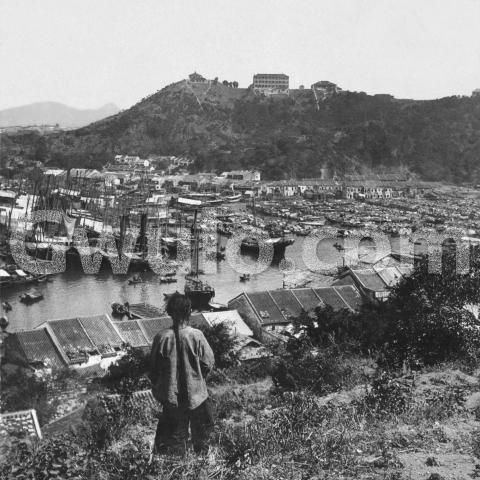

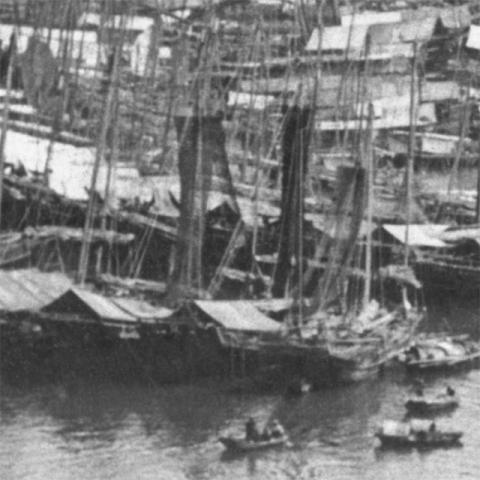
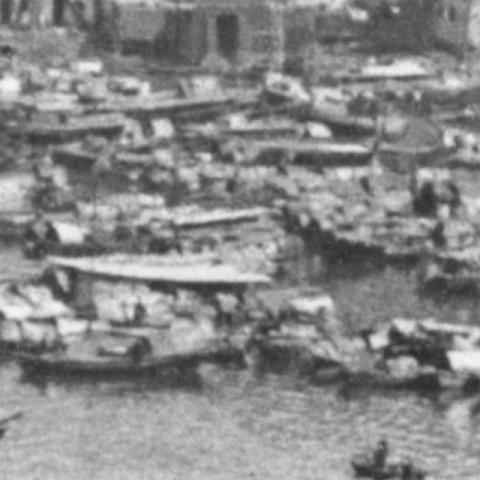
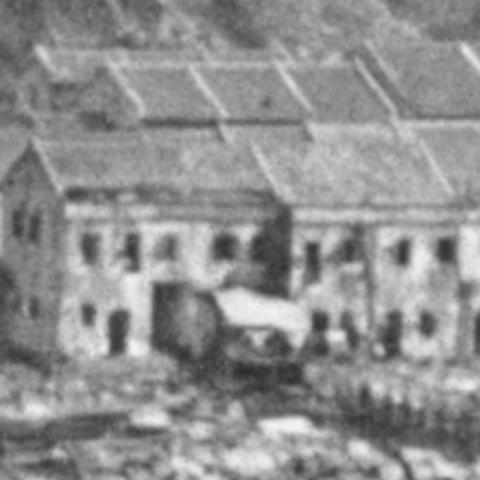
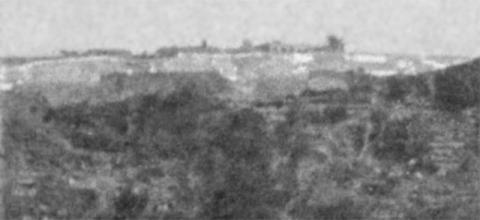
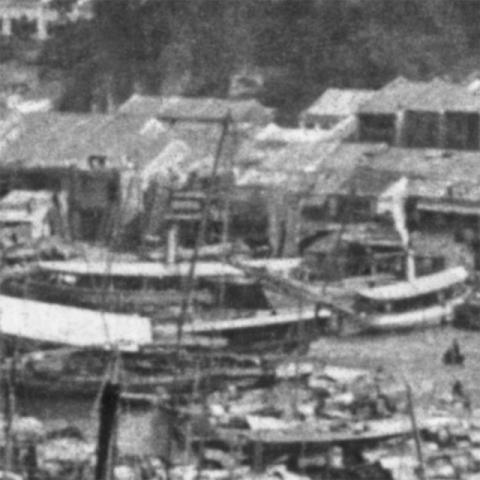
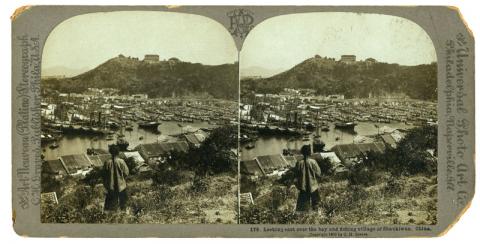

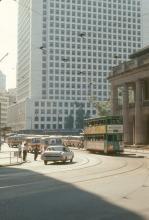
Comments
Parallel, not Cross Eye
Just a note for those who want to see it in 3D. This is a parallel stereogram, and so you don't want to actually cross your eyes, although it may feel as if you are. What you want is for your right eye to look at the right image and the left eye at the left.
(It really is a great image for 3D, so I hope that you can do it)
re: Parallel, not Cross Eye
I've never managed to make the parallel method work for me, but it sounds like it is less stressful on the eye muscles if you can do it.
Here's some more information about the two methods:
http://en.wikipedia.org/wiki/Stereoscopy#Freeviewing
And a practical demonstration about how to make the cross-eyed method work:
http://www.starosta.com/3dshowcase/ihelp.html
Regards, David
3D images
I think these and a number of other steeograms were in display in an exhibition last year (or the year before) in the HK History Museum. There was a specific apparatus where you looked through a wooden-framed lens with the film fixed in front.
P.S I am able to make it look 3D by crossing my eyes. Very stressful after a few seconds.
breskvar
Eye Stress
I've always found parallel to be less stressful, although cross-eye does have the advantage of you being able to view the image at a closer distance.
But next year, when we all have our virtual reality goggles, everything will be close and stress free!
This is an example of an old
This is an example of an old viewer, that makes looking at these cards a lot easier. I'd like to have one some day:
Old Stereo Viewer
Yes, I used to have one of those. And I also have some more modern ones now. But I will be much more excited to have virtual reality goggles where I don't need to print out the cards.
And you might like this stereo image of Central in 1869 that I have restrored and coloured.
http://i.imgur.com/TYoyghI.jpg
Nice job with the 1869 photo,
Nice job with the 1869 photo, thanks for the link.
Regards, David
Lei Yue Mun Park and Holiday Village
Geoff Emerson makes a good point for anyone planning to visit there:
One point for visitors today - one cannot just go to the Park and be admitted. You need to book on-line, even for a day visit. (At least this was true the last time I went there, a few months ago.) It's really quite a wonderful place that was saved, amazingly, from the developers.
You can find details for booking at: http://www.lcsd.gov.hk/en/camp/booking_guide.html
Regards, David